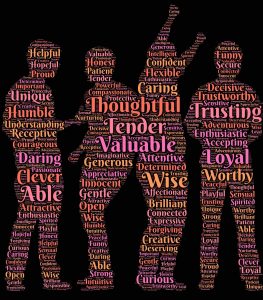8.2 A Reflective Mindset

“Unless teachers develop the practice of critical reflection, they stay trapped in unexamined judgments, interpretations, assumptions, and expectations. Approaching education as a reflective practitioner involves fusing personal beliefs and values into a professional identity” (Larrivee, 2000, p.293 in Finlay, L, 2008).
Disposition can mean many things to different people but according to Merriam-Webster (n.d.) disposition is defined as a “person’s inherent qualities of mind and character, prevailing tendency, mood, or inclination, temperament or makeup.”
So why is it essential to examine disposition as related to a reflective mindset? There is much debate about whether reflective practice is a technical skill that can be taught, or a way of being an attitude or a personal quality that can be cultivated.
There is evidence that supports creating a culture of reflection, a disposition of thinking critically, and of valuing multiple perspectives as a context of one’s own reflective pedagogy. Farrell (2014) Rose (2013) and others suggest there are main characteristics of a reflective educator some of which include open-mindedness, whole-heartedness, and responsibility. Dewey (1933, 1986) has noted that all three of these attitudes are not only important in “order that the intention of thinking in a reflective way…they are traits of personal character that have to be cultivated” (p.139). Rose (2013) speaks to responsibility as stewardship stating we must be stewards of the use of writing, of technology and of reflective practice. Reflection can be cultivated by a teacher for whom reflection is an ethical commitment (pg.105).
“Children do not experience our intentions, no matter how heartfelt. They experience what we manifest in tone and behaviour.” Gordon Neufeld
Video: A Reflective Mindset
To learn more about a reflective mindset watch the video: A Reflective Mindset – The Secret to a Better and Longer Life by Ali Fenwick [11:41].

